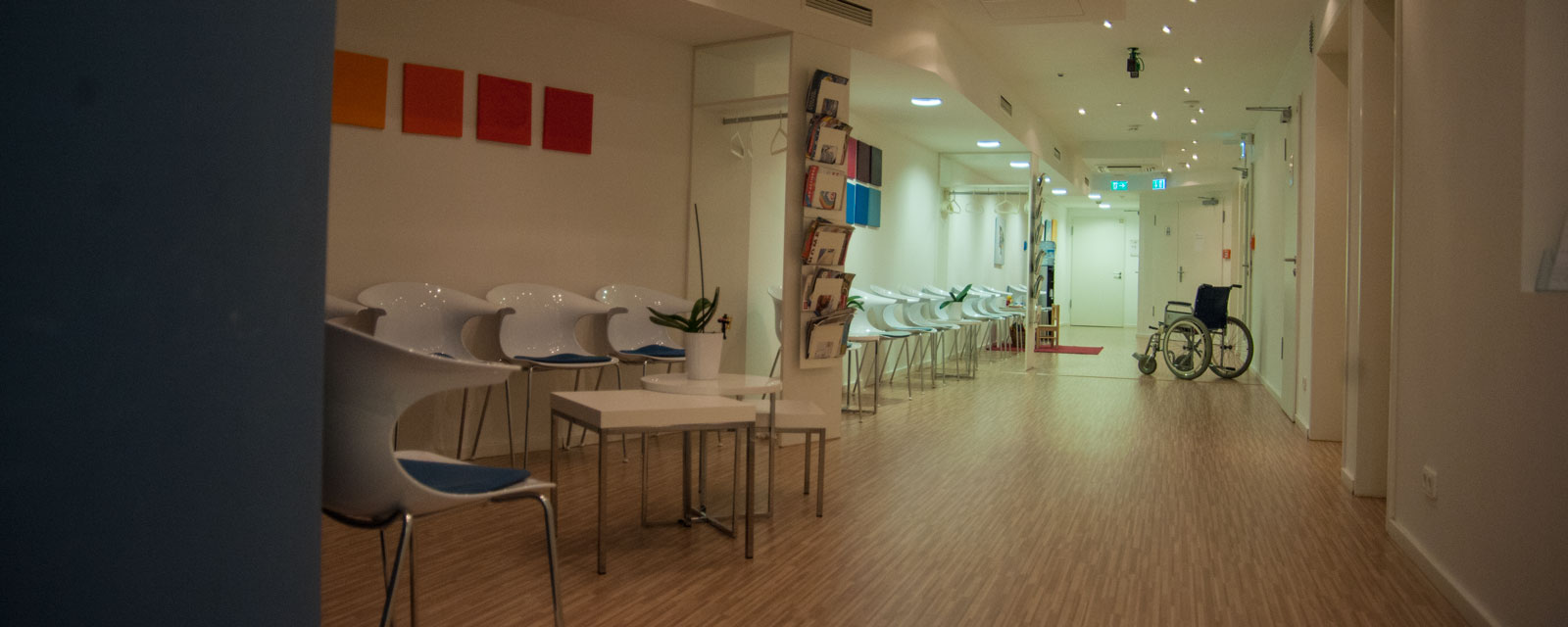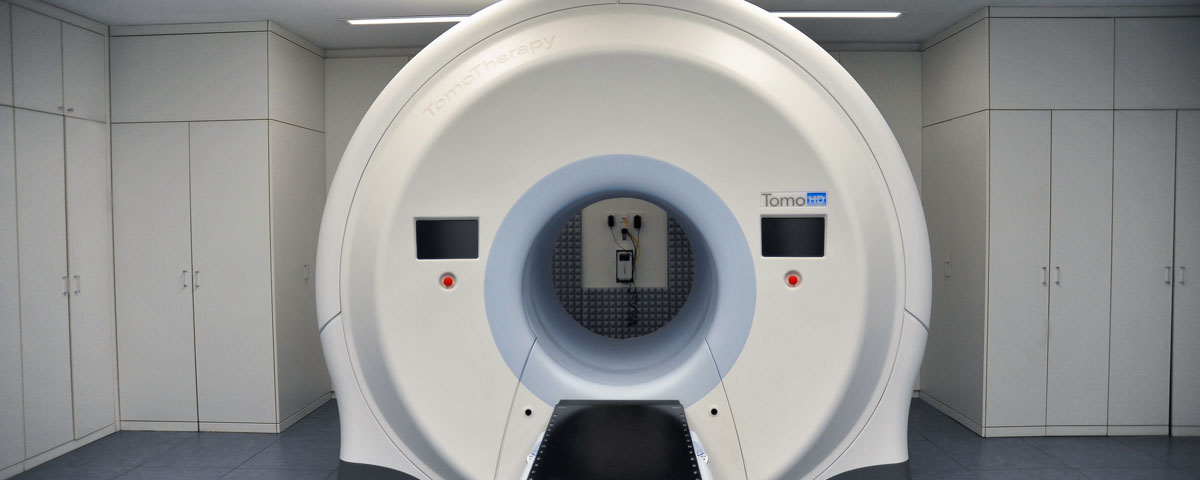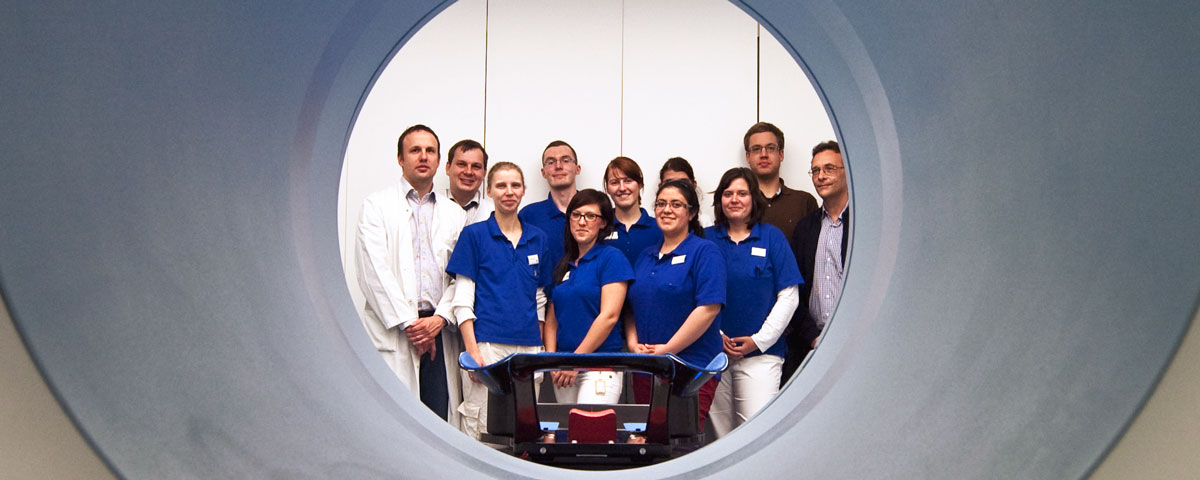History
The Diagnostic and Treatment Centre (DTZ) near the Frankfurter Tor in Berlin-Friedrichshain offers you a unique concentration of outpatient care provisions. In the ‘easy-access centre’ ten practitioners from the fields of radiology, nuclear medicine, internal medicine and radiotherapy work together as a tightly-knit team to provide all-round patient care.
Founded in 1990 as the first medical practice in eastern Berlin under the state healthcare system, the family firm has developed from a specialist practice for thyroid and cardiac catheter diagnosis into an interdisciplinary centre for individualised medicine. The first outpatient PET/CT commissioned 11 years ago laid the foundations for the development of today’s Medical Care Centre (MVZ), where 1,200 square metres offer patients the full spectrum of oncological imaging and radiotherapy treatment. Since its incorporation of MRT and SPECT/CT diagnosis, radiotherapy and our in-house radiochemistry, completed in 2012, the DTZ in Berlin-Friedrichshain has housed a unique concentration of high-tech facilities.
The founder and medical director of the DTZ Berlin, Professor Wolfgang Mohnike MD, recognised that patients in the German healthcare system ran the risk of drowning in a flood of diagnoses. This conviction spurred him towards his goal of developing a medical care centre in which patients received specific diagnosis of the highest standards, so that they could then receive optimum treatment.
Teaching hospital diagnosis at the DTZ Berlin
In order to enable DTZ patients to receive PET/CT diagnosis for as broad a range of indications as possible, the DTZ has signed agreements with various health insurance providers, who have recognised the advantage of this diagnostic procedure for
their patients and will bear the costs for it. To make PET/CT diagnosis accessible to those covered by statutory health insurance for other cancers besides those (lung and lymph gland) included in the catalogue of statutory health insurance services from the Federal Joint Committee (G-BA), the DTZ initiates and takes part in studies of the most important widespread diseases, for example the study of Alzheimer’s diagnosis with Dr Peter Franz of the Queen Elisabeth Hospital Medical Service Centre, and the study of treatment responses in breast cancer patients with the German Breast Group. The DTZ and its patients benefit from our in-house equipment for prostate diagnosis: PET can show tumour metabolism, CT the anatomy, and MRT the prostatic capsule. All these data are essential for optimum, patient-specific surgery plans.
An optimally adjusted mix of PET/CT, SPECT/CT, MRT and ultrasound, plus the interdisciplinary collaboration of internal specialists, radiologists, nuclear medicine specialists and radiotherapists at the DTZ – including the application of the latest scientific knowledge – are of paramount importance for individualised medicine and quality assurance at the DTZ. Our archive of images – not limited to those from the centre – forms the basis for optimum cooperation of the specialist team in real time (Siemens research project).
High-performance radiotherapy centre at DTZ
Alongside surgery and chemotherapy, radiotherapy is one of the fundamental cornerstones of cancer treatment today. At the DTZ we’ve installed three ultra-modern radiation devices. The TomoHD enables safe and, at the same time, remarkably gentle treatment even in highly challenging cases, thanks to its unique irradiation technique. It is also capable of minimising the effect on surrounding tissue, particularly in the case of bronchial and prostatic
carcinomas.
The two Agility linear accelerators – the latest innovation in the field of stereotaxy from market leader Elektra – combine all irradiation techniques together (photons according to CT plan, IMRT/Rapidarc, stereotaxy), something that is of great importance for the treatment of breast cancer patients in particular. The Agility linear accelerator’s innovative aperture system, with its 160 tungsten leaves, is able to distribute radiation doses extremely quickly and safely, considerably minimising stress on surrounding healthy tissue.
Cooperation: Future of optimised patient care
Because Professor Mohnike, Medical Director of the DTZ, believes that separating outpatient care and hospital care is no longer relevant today, future-oriented cooperation between the DTZ Medical Care Centre and hospitals is becoming increasingly more important. In addition to its existing cooperation agreements with all the major hospitals in the area, at present the DTZ is preparing agreements relating to specialist medical care (ASV) with the Sana Clinic in Lichtenberg.
Since the first-ever outpatient cyclotron went into service in the DTZ’s in-house radiochemistry facility this year, the medical care centre has been able to use this particle accelerator to manufacture its own test substances at molecular level – a first for outpatient care. The DTZ radiotherapy centre’s third linear accelerator, also integrated into patient care operations in 2014, expands the range of care options and supports the Centre’s efforts to offer its patients diagnosis at the highest technical level for optimum, tailor-made treatment, all under one roof.








 Practical guide: The DTZ at a glance
Practical guide: The DTZ at a glance



